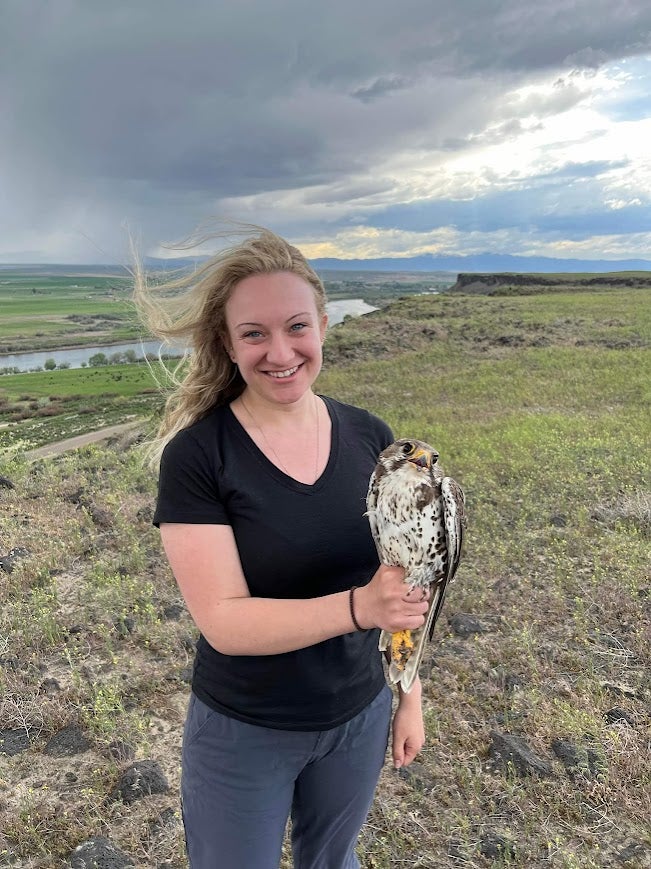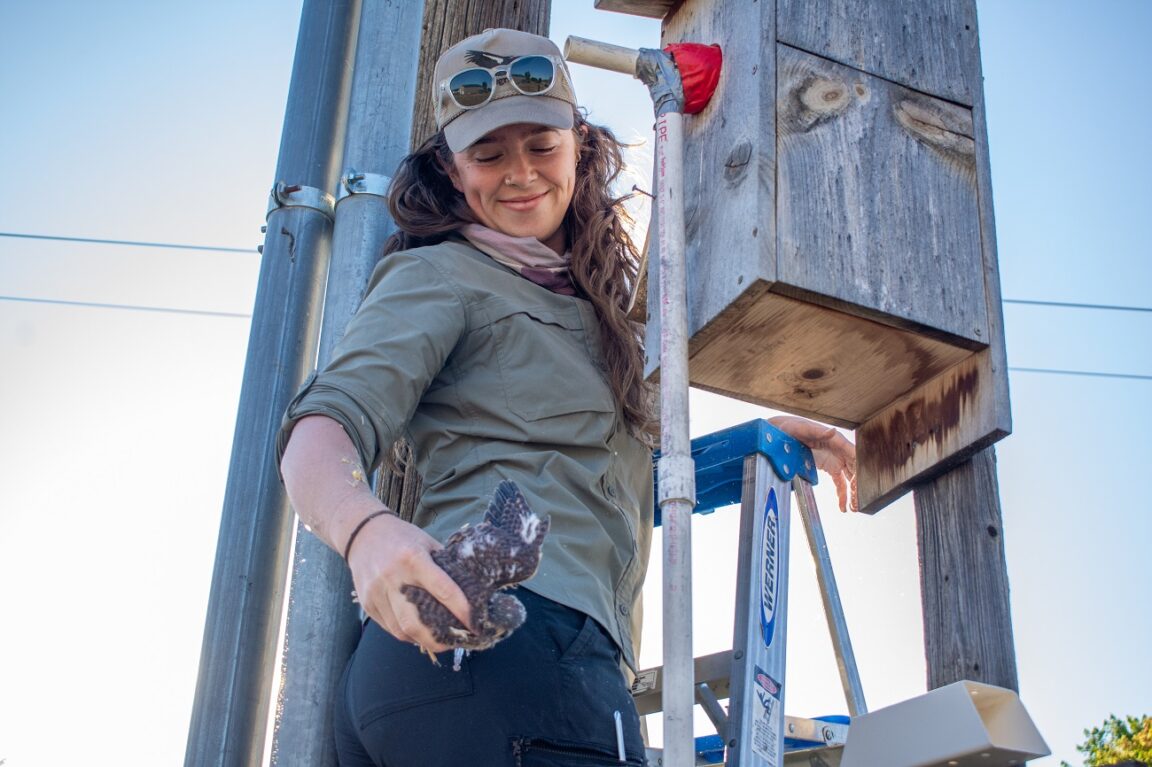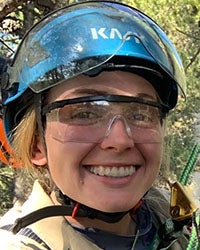Student Projects
Check out our current Raptor Biology graduate students’ amazing research.
-

Zoe Bonerbo
My research focuses on behavioral variation in Prairie Falcons in the sagebrush habitats of southwestern Idaho. I am studying how differences in foraging and breeding behavior influence their demography. This work is critical as sagebrush ecosystems face threats from habitat loss, invasive species, and climate change, and behavioral diversity can enhance population-level resilience to these changes.
My research focuses on behavioral variation in Prairie Falcons in the sagebrush habitats of southwestern Idaho. I am studying how differences in foraging and breeding behavior influence their demography. This work is critical as sagebrush ecosystems face threats from habitat loss, invasive species, and climate change, and behavioral diversity can enhance population-level resilience to these changes.
-

Brent Clark
My research focuses on a local burrowing owl population in portions of the Morley Nelson Snake River Birds of Prey National Conservation Area within southwestern Idaho in which I am exploring how kinship is structured in the population, developing a better understanding of population dynamics, and determining what factors influence lifetime reproductive success.
My research focuses on a local burrowing owl population in portions of the Morley Nelson Snake River Birds of Prey National Conservation Area within southwestern Idaho in which I am exploring how kinship is structured in the population, developing a better understanding of population dynamics, and determining what factors influence lifetime reproductive success.
-

Elizabeth “Liz” Jessmore
My MS thesis research project focuses on determining the genetic diversity (e.g., allelic diversity and level of heterozygosity) of the Snake River population of burrowing owls that have been sampled over a nearly 30-year time period, dating back to 1997. My research aims to: 1) determine the level and structure of genetic diversity among individuals in this population over time, or over several generations, 2) compare the level of genetic diversity of individuals from different generations to assess whether it has changed over time, and 3) if changes are detected, evaluate previously published information to determine the ecological and/or demographic factors contributing to this change.
My MS thesis research project focuses on determining the genetic diversity (e.g., allelic diversity and level of heterozygosity) of the Snake River population of burrowing owls that have been sampled over a nearly 30-year time period, dating back to 1997. My research aims to: 1) determine the level and structure of genetic diversity among individuals in this population over time, or over several generations, 2) compare the level of genetic diversity of individuals from different generations to assess whether it has changed over time, and 3) if changes are detected, evaluate previously published information to determine the ecological and/or demographic factors contributing to this change.
-

Solai Le Fay
My research will assess how weather in wintering and breeding grounds impacts Western Burrowing Owl demography. I will be using more than 10 years of banding and nest monitoring data from the Global Owl Project in northern Oregon to assess the direct and indirect effects of weather on nesting productivity and on adult survival.
My research will assess how weather in wintering and breeding grounds impacts Western Burrowing Owl demography. I will be using more than 10 years of banding and nest monitoring data from the Global Owl Project in northern Oregon to assess the direct and indirect effects of weather on nesting productivity and on adult survival.
-

Kevin Myers
My research focuses on the factors that influence the length of the post-fledging dependence period (PFDP) for resident Golden Eagles in Southwest Idaho. We have observed that the length of PFDP in our study population is highly variable. There is limited information on the PFDP portion of the Golden Eagles breeding season in non-migratory populations. I will investigate whether several factors including nestling health, parental behavior, as well as multiple environmental components affect the PFDP.
My research focuses on the factors that influence the length of the post-fledging dependence period (PFDP) for resident Golden Eagles in Southwest Idaho. We have observed that the length of PFDP in our study population is highly variable. There is limited information on the PFDP portion of the Golden Eagles breeding season in non-migratory populations. I will investigate whether several factors including nestling health, parental behavior, as well as multiple environmental components affect the PFDP.
-

Sarah Scott
I am investigating diversity, annual trends, and effects of blood parasites in American Kestrels. My research will focus on identifying the physiological costs of chronic infection and assessing whether these costs vary among groups of kestrels with differing migratory strategies.
I am investigating diversity, annual trends, and effects of blood parasites in American Kestrels. My research will focus on identifying the physiological costs of chronic infection and assessing whether these costs vary among groups of kestrels with differing migratory strategies.
-

Jessy Wilson
My research focuses on the population of American Goshawks in the Minidoka Ranger District of the Sawtooth National Forest. I am studying the relationships between goshawk nest temperature, canopy cover, and productivity responses and assessing how well canopy cover can predict goshawk productivity trends.
My research focuses on the population of American Goshawks in the Minidoka Ranger District of the Sawtooth National Forest. I am studying the relationships between goshawk nest temperature, canopy cover, and productivity responses and assessing how well canopy cover can predict goshawk productivity trends.